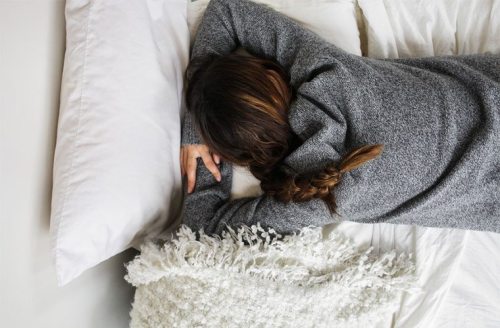During cold and flu season, there’s almost no way to avoid catching some kind of bug. You wash your hands often, cover your sweaty head with a beanie post-workout, and even hit the weight machines with a triple wipe down before you do your thing.
And yet, the germs still get you. (When they do, here’s what to eat to feel better ASAP.)
While most people have a general idea that a good night of sleep can help ward off sickness, new research indicates exactly why your immune system goes down when you’re skipping zzz’s—and might actually convince you to forgo your nightly Netflix in favor of more shut-eye.
Over the past century, people in the United States are sleeping an estimated one-and-a-half to two hours less than they used to.
Conducted at the University of Washington and published in the journal Sleep, the study took blood samples from 11 pairs of identical twins with different sleep patterns and discovered that, in each duo, the sibling who slept the least had a more depressed immune system.
And what’s significant about this study is that researchers used “real world” conditions (instead of observing participants in a sleep lab)—and showed for the first time that chronically skimping on sleep can shut down key functions having to do with immune response, the paper’s senior author, Sina Gharib, MD, explains to ScienceDaily.
“What we show is that the immune system functions best when it gets enough sleep. Seven or more hours of sleep is recommended for optimal health,” says lead author Dr. Nathaniel Watson, co-director of the UW Medicine Sleep Center at Harborview Medical Center.
Crucially, the researchers also reported that over the past century, people in the United States are sleeping an estimated one-and-a-half to two hours less than they used to—with about a third of working adults clocking in less than six hours per night. (In other words, if there were ever a time to take Tom Brady up on his clean sleeping regimen, it would be now.)
Speaking of prioritizing sleep, find out why staying in is officially the new going out. Even Emma Watson’s on board—she calls herself a “fanatical nester.”
Sign Up for Our Daily Newsletter
Get all the latest in wellness, trends, food, fitness, beauty, and more delivered right to your inbox.
Got it, you've been added to our email list.










